11 Simple Habits to Help You Sleep Soundly at Night
Regular sex, good eating habits and more can lead to better ZZZs.
Updated on April 12, 2022
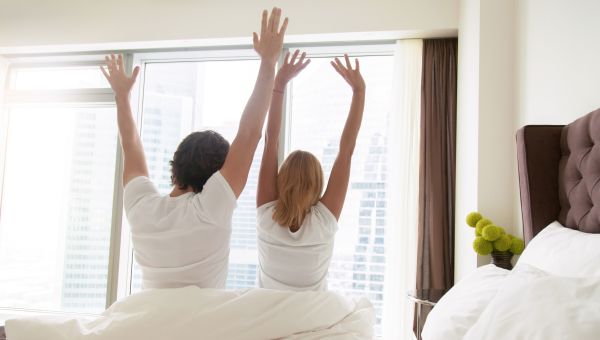
When you’re tossing and turning at 3 a.m., it feels like you’re never going to get to sleep. But what if we told you adjusting some of your habits could help? That’s right—you may have more control over your ZZZs than you think.
From the time you have your last sip of coffee in the afternoon, to the number of meals you eat throughout the day, keeping your body on a pretty regular schedule can help you wind down at night.
From sleep specialist Christopher Morgan, MD, of Mercy Health in Grand Rapids, Michigan, here are 11 sure-fire ways to get restful slumber.
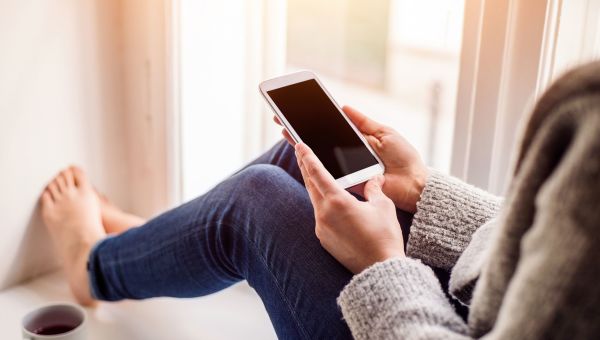
Track your sleep
The same way tracking your daily eats can help you achieve your weight loss goals, keeping track of your sleep habits may help you get better ZZZs.
Many sleep experts recommend that their patients keep a diary of both their sleep patterns and the lifestyle habits that affect sleep. Some of the most important things to keep track of include: hours slept, any sleep disturbances or disruptions that caused you to wake up in the night, how you felt the next day (tired? energized?), how much caffeine or alcohol you consumed, the medications you took and any exercise you performed.
When journaling your sleep habits, use Sharecare for iPhone or Android to record all of the details when you wake up; being as specific as possible will help you and your healthcare provider notice patterns and come up with a treatment plan. You may even start to notice problem areas on your own, and the ways in which you can improve. Bring your sleep journal to both general practitioner appointments and appointments with specialists—it’s best for all of your doctors to be aware of your sleeping patterns.
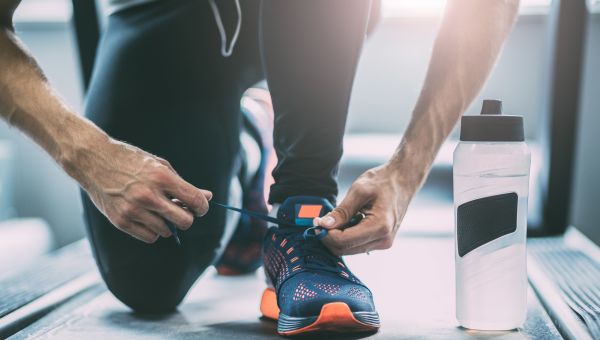
Break a sweat
Getting at least 150 minutes of exercise a week can help you feel more alert throughout the day, and can also help you sleep better at night. One study, published in Mental Health and Physical Activity, found that men and women ages 18 to 85 who got 150 minutes of either moderate or vigorous activity per week improved the quality of their sleep by 65 percent. And according to a National Sleep Foundation poll, vigorous exercisers are almost twice as likely as non-exercisers to report they had a good night of sleep.
Adults should strive for 150 minutes of moderate activity or 75 minutes of vigorous exercise each week, according to the U.S. Department of Health and Human Services (DHHS). Health experts note however, the more physically active you are, the better. Getting closer to 300 minutes of moderate exercise or 150 minutes of more strenuous activity on a weekly basis provides even greater health benefits. But keep in mind that any amount of exercise is better than none and will help reduce your risk for a slew of chronic health issues, like heart disease and diabetes. Even a two-minute walk counts towards your weekly physical activity goals.
To sleep soundly, shoot for exercise three to five days a week, and avoid intense exercise at least two hours before bed. Light exercise like walking may be okay before bed, but strenuous workouts like cycling or running could keep the body stimulated, making it harder to go to sleep, says Morgan.
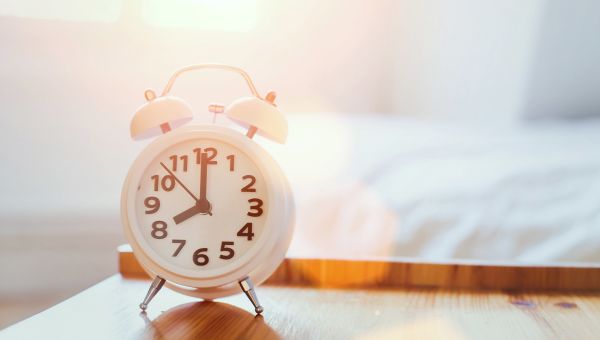
Stick to a sleep schedule
Waking up and going to sleep at the same time every night—yes, even on weekends—is key to getting good-quality sleep. “If you get up at 5 a.m. for work on the weekdays, you should try not to sleep in too much later than that on the weekends,” says Dr. Morgan.
Sticking to a schedule helps regulate your body clock, so you can fall asleep at a certain time—and stay asleep once you do hit the hay. If you’re having trouble waking up at the same time each morning, try putting your alarm clock on the other side of your bedroom, so you have to get up to turn it off.

Eat regular meals throughout the day
Just like a sleep and wake schedule can help you get more slumber, eating regular meals throughout the day can, too. “Every system in our body has its own clock, so the more we can play into those body clocks, the better our body is going to function, and the better our body is going to be programmed to go to sleep at the right time,” says Morgan.
He recommends eating breakfast, lunch and dinner at about the same times every day so your digestive system gets used to processing foods then. If this is difficult, try setting phone alarms or marking your calendar to help you remember.
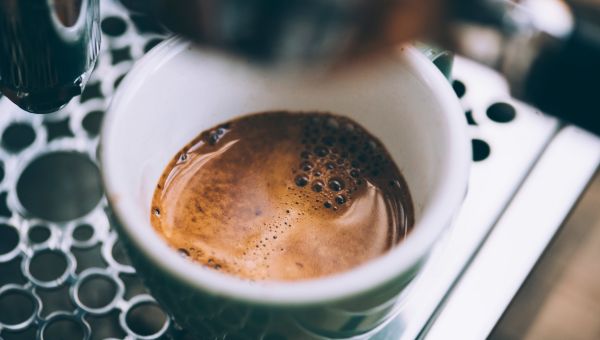
Take it easy on the espresso
That morning cup of joe can block chemicals causing sleepiness and increase adrenaline production. So, while an a.m. pick-me-up is okay, downing lots of soda or coffee throughout the day is going to cause sleep trouble later on.
Even though caffeine doesn’t affect everyone the same way, it's still a stimulant that can prevent your brain from achieving deeper levels of sleep, says Morgan. “There are people that are slow metabolizers of caffeine and then there are people that are quick metabolizers of caffeine.” One study even found that consuming caffeine six hours prior to bedtime can reduce sleep time by one hour. Caffeine can also make sleep disorders like restless legs syndrome worse.
If you love that cup of coffee, Morgan recommends nixing it six to eight hours before bedtime. Watch out for things like tea and chocolate—they contain low amounts of it, too. Try limiting your caffeine intake to 250 milligrams a day; that’s about three 8-ounce cups of coffee.

Skip that second drink at happy hour
It may seem like alcohol helps you fall into a deep sleep—and it will for a few hours because it’s a depressant—but for the second half of the night, you’re probably going to toss and turn. “When the alcohol wears off, you have a mini withdrawal syndrome, and your brain gets overstimulated, causing you to have disrupted sleep the second half of the night and wake up before you’re rested,” says Morgan.
Never, ever use alcohol to try to fall asleep: “People who don’t have control over their alcohol or have insomnia try to self-medicate themselves with alcohol.” Alcohol also blocks rapid eye movement (REM) sleep, the type of sleep that allows your brain to process information from the day so that it can be stored in your long-term memory. If you don't get enough REM sleep, you’re likely to wake up feeling tired and less alert.
And if these reasons aren’t enough to forgo the 9 p.m. glass of wine, alcohol can also cause breathing problems like snoring and sleep apnea, and may make you go to the bathroom more often.
It’s okay to drink in moderation, but make sure you stick to one or two beverages, and enjoy them earlier on in the night.
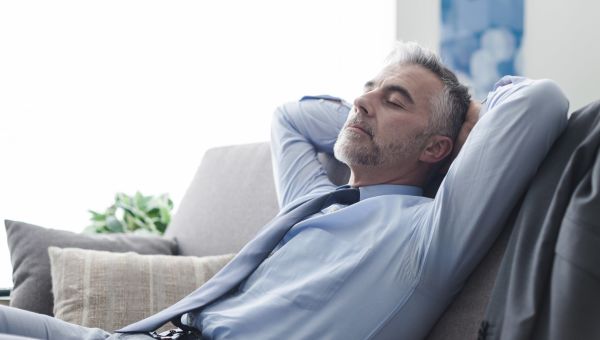
Limit mid-day snoozes
Naps may sound good at the time, but long siestas can disrupt your sleep later on. On the other hand, quick naps may not be so bad if you’ve slept poorly the night before. Power dozing, napping no longer than 30 minutes, can increase your alertness, put you in a better mood and may not interfere with your nighttime sleep patterns. “If you sleep any longer than that, you may get into a deep sleep, feel groggy and have more trouble waking up,” says Morgan.
If you are going to power nap, set your alarm for 15 to 30 minutes. And be sure your room is cool and dark so you can fall asleep more easily. The best hours to nap are between 1 and 3 p.m., since that tends to be when your blood sugar and energy levels plummet.
If you are having trouble sleeping at night, you may want to avoid naps altogether, though. While short power naps may help you make it through the day, avoiding them could help you sleep.
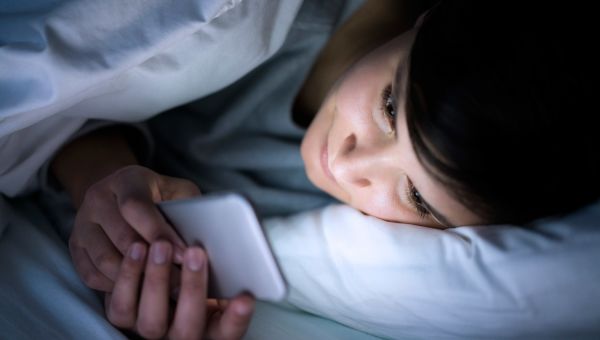
Say no to technology
Some technology may be good for your health, but overdoing it before bed can keep you awake. Looking through Facebook pages as you’re trying to wind down for sleep keeps your mind racing, which prevents you from being able to relax.
That's not all: the bright lights from TVs, tablets and phones is thought to suppress melatonin, the hormone that regulates your sleep and wake cycle. You normally start producing melatonin four to six hours before turning in for the night. “So when you’re using electronics an hour before bedtime, it’s going to make it harder for your body to naturally get into the rhythm of going to bed.”
If you have your phone on your nightstand, dings from texts, calls or emails may wake you, as well.
It’s normal to want to wind down at night with Instagram or your favorite TV show. Just be sure you set aside all gadgets at least an hour before bedtime, or keep electronics out of the bedroom so you’re not tempted—and yes, that means your TV, too.
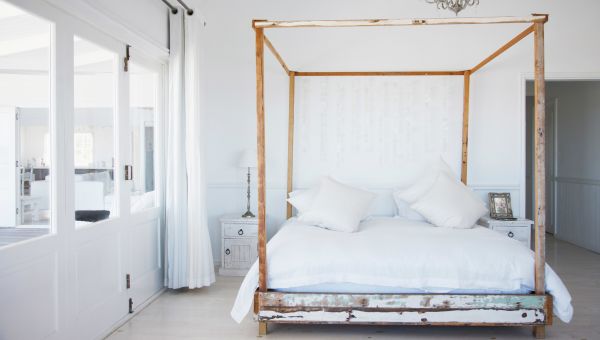
Make sure your bedroom is just for sleeping—and sex
If you’re hanging out in your bedroom for reasons other than sleeping and having sex, you should reconsider.
Why? “It’s important to distinguish your bedroom as a place to sleep, otherwise it’s hard for your body to realize the signals,” says Morgan. A lot of people with insomnia or other sleeping problems are so used to being awake in bed, that their brain can’t relax there anymore, he adds.
“So, try and make sure that you’re not doing anything in bed besides sleeping or having sex. And if you're not sleeping, get out of bed and go to another room until you feel sleepy again.” Keep your room cool—between 60 and 67 degrees is best—and make sure it's dark and free of any noise.
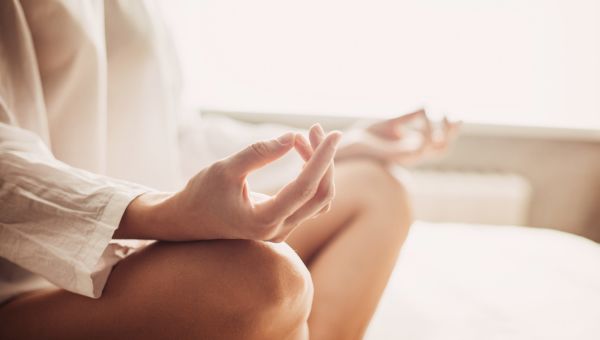
Experiment with relaxation techniques
You’re going to fall asleep faster—and get better sleep—if both your mind and body are at ease. Mindfulness activities help you focus on images and stories rather than worries and other thoughts that keep you up at night. And you can actually teach yourself a lot of these practices using YouTube or other websites, says Morgan. Here are some mindfulness techniques to try:
- Progressive muscle relaxation: Tense and relax the muscles in your toes, and then slowly work your way to your head and neck. Try tensing for five seconds and then relaxing for 30 seconds. Repeat a few times.
- Guided imagery therapy: Close your eyes and try to relax. Think of a scene or memory that comforts you, like looking out over the ocean or sitting outside reading a book. Slowly think through and visualize every detail of the moment, and if your mind wanders, recognize it, but then let it go.
- Breathing exercises: Close your eyes and start to take notice of your breath. Pay attention to the way the air passes in and out of your nose or mouth and through the rest of your body. Release any tension, and if other thoughts come into your mind, direct your focus back to your breathing.
- Mindfulness meditation: Sit on your bed and pay attention to your body only. You may notice things like your breath or the floor underneath you. Focus your mind and if it wanders to other things, bring it back to your body.
Start with five minutes and gradually work your way up to the duration that feels right for you. If you need additional help, try talking to a sleep specialist.
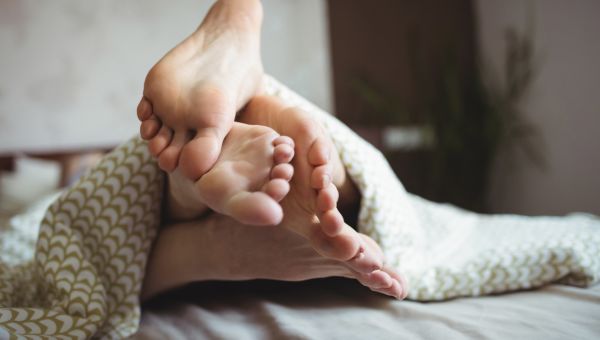
Have sex
Having sex releases all kinds of beneficial hormones. It lowers levels of the stress hormone cortisol and releases hormones like oxytocin, making you feel more connected to your significant other. And reaching orgasm encourages the release of the hormone prolactin, which can help you relax and get into sleep mode. If that’s not enough, sex also increases estrogen levels, which can foster deep sleep, too.
If you’re having trouble finding the time for sex, schedule it on your calendar. And if you’re lying in bed and your head is spinning with thoughts from the day, try initiating sex with your partner instead of dwelling on those thoughts.
More On


video

article
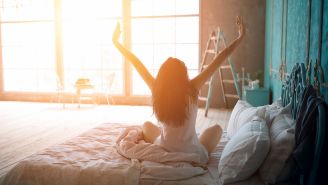
slideshow


video


video
